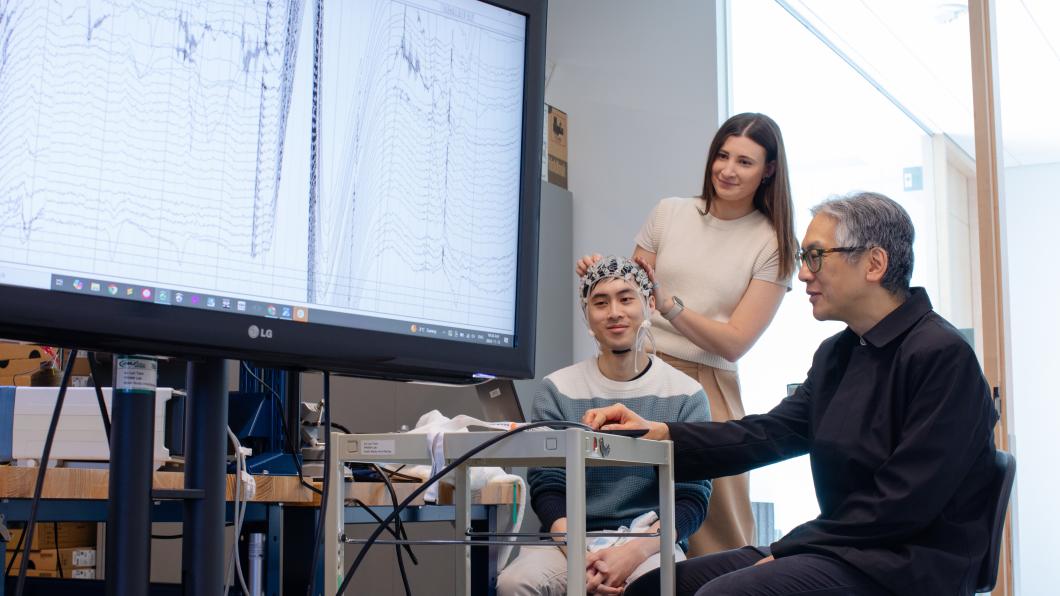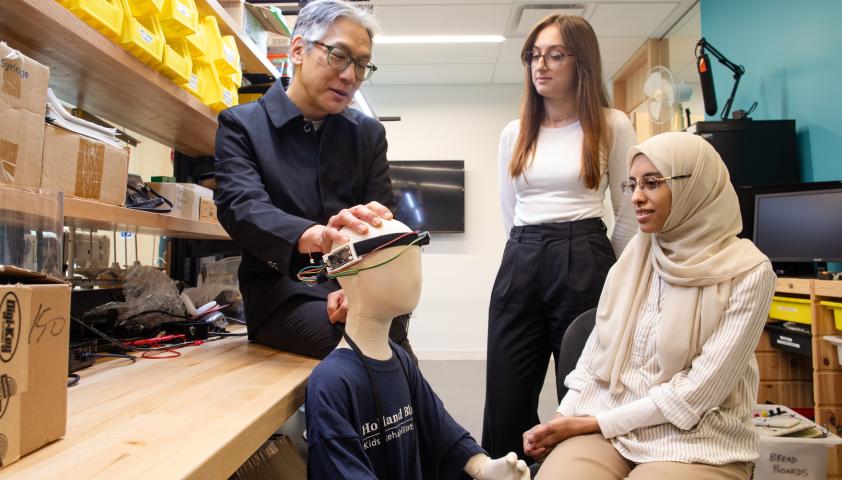
The power of inclusive communication
Advocacy is at the core of everything Dr. Chau does.
As the leader of the PRISM Lab at Bloorview Research Institute (BRI), Dr. Chau’s research helps children and youth with minimal motor or verbal control advocate for themselves.
“We want to make sure they can advocate for their own care, their own preferences, and really, direct their own lives,” Dr. Chau says. “These are fundamental human rights.”
The PRISM Lab is opening up a world of communication, freedom and independence. Through cutting-edge technology like brain computer interface (BCI), kids with limited speech and movement use the power of their brains to control devices like moving a power wheelchair, painting, or playing music on YouTube.

Since 2019, the research-integrated clinics at Holland Bloorview have used this technology. Today, over 200 kids access the clinic, combining the power of research and clinical care. Through a new partnership with Empowered Kids Ontario, we’re increasing access to this life-changing technology by expanding this clinic across Ontario.
Not only do these technologies help kids with disabilities in their everyday lives, but they also challenge ableist beliefs. For kids who use communication devices, being interrupted or even spoken for is an all-too typical experience.
“Many people assume the child doesn’t have an opinion, or they're unable to formulate an answer,” Dr. Chau says. “They could be very effortfully trying to form the answer, but they haven’t had the chance.”
Devices like The Hummingbird help kids with minimal verbal control be heard. The Hummingbird allows kids to use their vocal cords to control devices, like an augmentative and alternative communication (AAC) device or computer. This means a child’s hum can translate into turning on music, rolling dice during family game night, or typing messages to a friend on a keyboard.
Removing barriers to participation is at the heart of Dr. Chau’s vision for the future. He remembers a five-year-old child who called his dad while he was at work. Using The Hummingbird with AAC software, he typed out the words, “Hi dad. How are you? Goodbye.” This moment would not have been possible without the technology, Dr. Chau says.
“It was a really emotional experience for the dad. Things that are usually considered to be very ordinary things in people's everyday lives have become world-shattering experiences for these families.”
With the BRI’s recent expansion, we’re poised to create new discoveries and pioneer more technologies that help children communicate, learn, and navigate the world with fewer barriers.
At the PRISM Lab, the future is bright. Dr. Chau’s lab is tapping into their innovative thinking and opening even more possibilities for kids with disabilities.
The lab is working on a more comfortable and fashionable BCI made entirely of fabric. Similar-looking to a beanie, the new technology uses fabric-sensing electrodes to measure brain signals. Kids will also be able to wear glasses that double as an augmented communication aid and allow them to ask questions to a chatbot. By moving their eyes, kids can type on their lenses and find out how to get to Tim Hortons, play YouTube videos, or check the weather.
And kids with cortical vision impairment—who have been traditionally left out of BCI research—will have access to a new technology where they can select sounds to help them communicate.
This transformational research is made possible with your support. As Dr. Chau puts it:
“If we impact even one child, then it's worthwhile.”
Dr. Chau’s work is made possible due to the generous funding of donors including The Slaight Family Foundation, FDC Foundation, The Raymond Chang Foundation, Gail MacNaughton, The REMAD Foundation, David Goodman Youth Community Trust and TELUS Friendly Future Foundation.
Photography Credit: Tim Fraser